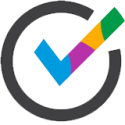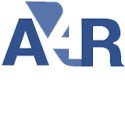Schedule a meeting online
Book sessionIRS Tax Tip
Taxpayers who are contacted by a private collection agency on behalf of the IRS might have questions about the program. These taxpayers can visit IRS.gov to find answers to questions they might have.
In fact, to better help these taxpayers, the IRS recently updated the private debt collection pages on IRS.gov. These updates added more information for taxpayers whose case is being handled by a collection agency.
The web pages include info such as:
-The names and addresses of the collection agencies. -How the process works. -What a taxpayer should do after being contacted.
Here are some things taxpayers should know about the private debt collection program:
- The law requires the IRS to use these agencies to collect certain inactive tax debts.
- Before being contacted by a private collection agency, the taxpayer will receive two letters.
- Notice CP40 comes from the IRS to individual taxpayers. Business taxpayers receive a Notice CP140 from the IRS. These letters tell the taxpayer their overdue account was assigned to a private collection agency.
- An initial contact letter comes from the private collection agency. This letter has info on how the taxpayer can resolve their overdue taxes.
- Both letters contain a taxpayer authentication number. It's used by the collection agency to confirm the taxpayer's identity. It's also used by the taxpayer to verify the caller is from a legitimate collection agency.
- Taxpayers whose debt was transferred to a private collection agency will be contacted by one of four agencies. When contacted, the taxpayer should make sure the caller is from one of the private collection agencies listed on IRS.gov.
- The private collection agency will ask the taxpayer a series of questions to make sure they're talking to the correct person.
- The taxpayer will be asked to exchange portions of the taxpayer authentication number with the private collection agency. This allows the caller and the taxpayer to validate each other's identity.




